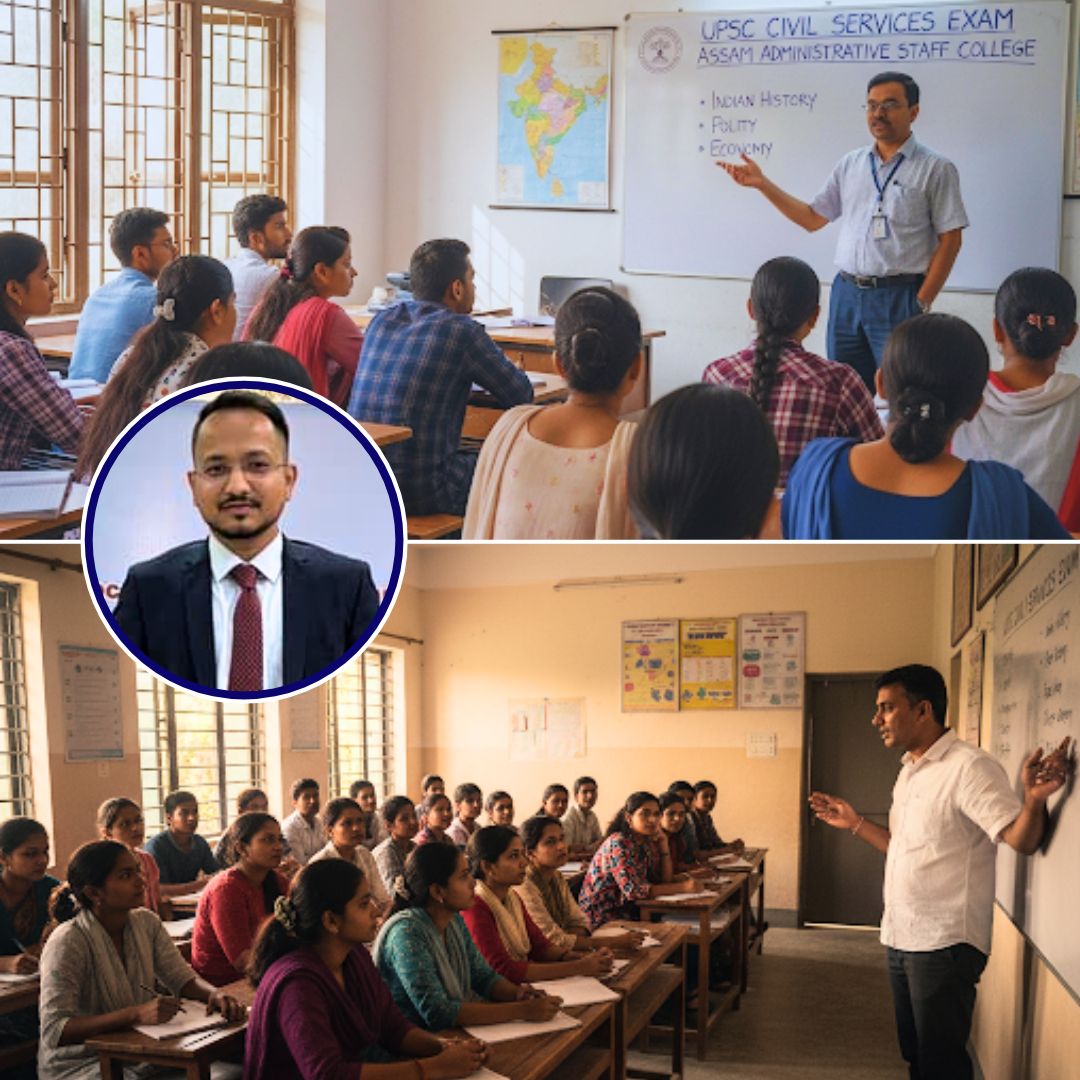In Assam’s Bajali district, Asfaque Laskar, an assistant commissioner and civil servant, has voluntarily dedicated his evenings to coaching local youth for civil service exams free of cost. Recognising the significant lack of structured guidance and financial barriers faced by rural students, Laskar launched this initiative last year after successfully clearing the state civil services examination himself.
Supported by local educational institutions like Nirmal Haloi College and fellow bureaucrats, his programme offers coaching aligned with both state and national competitive exams. This effort is opening new doors for students from economically disadvantaged backgrounds and complements Bajali’s tradition of producing successful civil servants. District officials have lauded his work as a model of committed public service going beyond routine administrative roles.
A Bureaucrat’s Mission to Empower Youth
Asfaque Laskar’s coaching initiative sprouted from his observation that many students in Bajali, especially in the educational hub of Patshala, were unaware of the civil service as a career option or lacked access to quality guidance. “The district has produced notable officers in the past, yet many young aspirants remain disconnected due to lack of structured mentorship,” Laskar explained.
After clearing the Assam state civil services exam in 2024, he began organising free evening classes, covering topics such as General Studies, CSAT, and the specialised syllabus for mains exams. His collaborative effort involves a private organisation and support from Nirmal Haloi College, creating a sustainable structure for around two months now.
As someone preparing for the Union Public Service Commission (UPSC) exams himself, Laskar also boils down complex material into approachable lessons, making the journey less daunting for students.
Overcoming Barriers in Rural Education
Bajali district, like many rural parts of Assam, faces educational challenges including limited coaching facilities and financial constraints among families. Many aspirants previously had to travel to Guwahati or other urban centres to prepare, incurring heavy expenses. Laskar’s initiative not only fills this void but relieves the economic strain on students and their families.
His programme ensures equitable access to quality education, opening doors to careers traditionally seen as difficult to enter from remote regions. Encouragingly, other bureaucrats from neighbouring districts have begun contributing their time and expertise, signalling growing institutional recognition of the value of community-driven mentoring programmes.
Community Impact and Official Recognition
Community members have welcomed this initiative as a vital opportunity for youth empowerment, particularly for those from marginalised backgrounds. “This coaching programme instills confidence and clarifies the roadmap toward a prestigious career pathway, which many didn’t see before,” said one student benefitting from the classes.
District authorities too have actively endorsed the programme, terming Laskar’s approach as “a stellar example of public service that goes well beyond the call of duty.” Local media and social platforms have amplified his story, showcasing Bajali’s efforts as a beacon of hope for rural Assam’s youth and a call to action for similar efforts nationwide.
The Logical Indian’s Perspective
At The Logical Indian, this story exemplifies how dedication and empathy can transform governance into an agent of genuine social change. Asfaque Laskar’s commitment is a reminder that system-level reforms are crucial, but individual acts of kindness, mentorship, and service at the grassroots level are equally powerful in shaping futures.
Lower-tier bureaucrats are often bogged down by bureaucratic routines, yet Laskar’s model shows how they can bridge gaps and foster hope in communities often left behind. This narrative urges local leaders and citizens alike to envision governance as collaborative nurture-where every child’s potential finds room to flourish.












